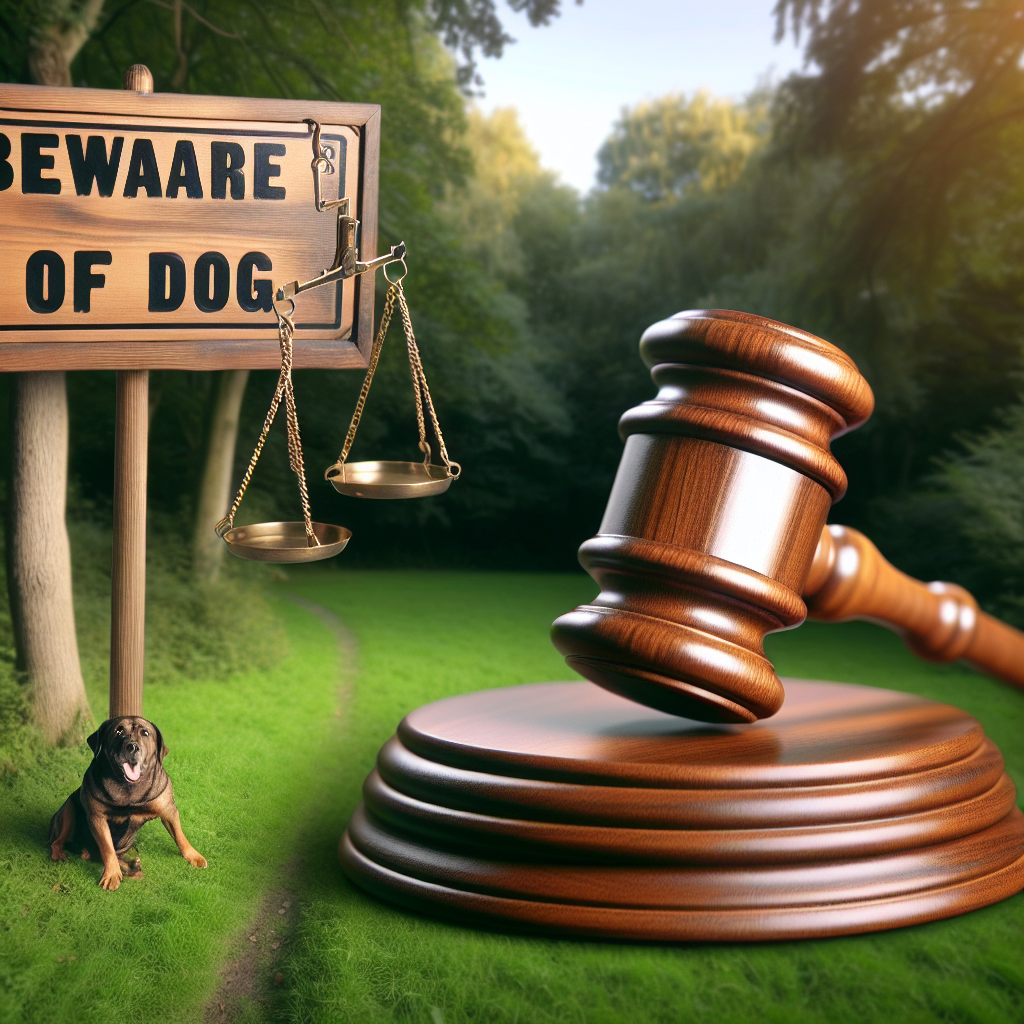Your Legal Standing in Animal-Related Incidents
It’s important to know that as an individual, you have rights if you are the unfortunate victim of a dog bite or other animal attack. In most jurisdictions, pet owners are typically held liable for the injuries their pets cause. This responsibility can often be found in statutory laws, local ordinances, and court decisions. To fully understand your rights, familiarize yourself with both state and local laws concerning animal control.
Navigating Strict Liability Laws
Many states operate under what is known as ‘strict liability’ laws when it comes to dog bites and animal attacks. These laws hold the animal’s owner liable if their pet injures another person, regardless of whether the owner was negligent or knew the animal could be dangerous. However, some conditions may apply. For instance, if the victim was trespassing or provoking the animal, the owner might not be held accountable.
Understanding Negligence in Animal Attacks
In some cases, the owner might not be held responsible under strict liability if they had no prior knowledge of the animal’s dangerous propensities. In such situations, negligence can play a significant role. If it can be proved that the owner did not take reasonable care to restrain the animal or prevent the attack, they can be held liable for negligence. Understanding these nuances is critical to navigate your legal options in case of an animal attack.
Remember, each incident will differ based on the laws of your specific jurisdiction and the circumstances surrounding the attack. Consulting with a personal injury attorney who specializes in animal bites could provide further insight into your rights and legal options.
Determining the Liability in Animal Attacks
Understanding Legal Responsibility in Animal Attacks
When it comes to assessing legal liability in animal attacks, several factors are taken into consideration by the law. This includes determining who the responsible party is – typically, the owner of the animal. The owner can be held liable if it’s established that they were negligent or failed to control their pet, leading to an unprovoked attack. This responsibility may extend to anyone responsible for the care or custody of the animal at the time of the incident.
Navigating Statutory and Common Law Rules
Statutory law often exists in many jurisdictions for dog bites specifically, and places strict liability on the owner. Strict liability means the dog owner is responsible for injury caused by their pets, regardless of whether the owner was aware of the dog’s vicious propensities. This contrasts with the “one-bite rule” recognized in some common law systems, which suggests that if a dog has never bitten before and exhibited no aggressive tendencies, the owner may not be held liable for the first bite.
Consideration of Circumstances and Contributory Negligence
There are numerous circumstances where owner liability may be challenged. For example, if the victim was trespassing or provoking the animal, this could affect the claim. The concept of contributory negligence comes into play when the injured party’s actions contributed to provoking the attack. If found to be contributory negligent, the victim’s compensation may be reduced or even denied.
While these guidelines provide a general overview, the specifics can vary significantly across different jurisdictions. Therefore, it’s fundamental that victims or potential responsible parties consult with a professional knowledgeable in local laws pertaining to animal attacks and liability.
Steps to Take Immediately After an Animal Attack or Dog Bite
Responding Right After The Incident
Immediate steps right after an animal attack or dog bite are crucial, and primarily involve ensuring your safety and tending to any injuries. If the animal is still in sight and poses a threat, take measures to secure yourself from further harm. If the animal ran away, try to remember its appearance and which direction it went. Your primary focus should be on receiving immediate medical care; even small punctures can lead to severe infections, you should never underestimate a dog bite.
Medical Attention And Documentation
After confirming your safety, the second step is seeking medical attention, irrespective of the severity of the injury. This is not only crucial for preventing infections but also for legal purposes. Document all your treatments, injuries, medical visits, and any medications prescribed to you as they will act as evidence when claiming compensation. During your visit, your healthcare provider will also report the incident to local health departments, which will help in tracking the animal and possibly preventing more attacks.
Gathering Necessary Information
Once all immediate health concerns have been addressed, start gathering information related to the incident. If possible, identify the owner of the animal and collect their contact details. Take pictures of your wounds before they heal entirely, your clothes, and the place where the incident occurred. Try to find any witnesses that saw the accident and obtain their contact information. All these will come handy when you decide to file a claim or sue the animal’s owner for damages.
Legal Remedies Available for Victims of Animal Attacks
Compensation for Personal Injury
When an animal attack leads to physical harm, victims may have the right to seek financial remedy for their injuries. This can be claimed as personal injury and covers medical bills, prescription medications, physical therapy, mental health counseling, and any future medical costs related to the injury. Additionally, personal injury claims can include compensation for pain and suffering endured by the victim.
Property Damage and Loss
In some instances, an animal attack may result in damage to a victim’s property. If a dog, for example, attacks and damages a cyclist’s bike, the owner can be held liable for the cost of repairs or replacement. This also extends to personal items such as clothes or electronic devices that could have been damaged during the incident.
Lost Wages due to Incapacity
If the injuries inflicted by the animal are so severe that the victim needs to take time off from work for treatment and recovery, they may seek compensation for lost wages. This doesn’t apply solely to the immediate aftermath of the attack but includes any prolonged period of disability where the victim is unable to earn their usual income.
Note that laws vary by location and by the specific circumstances of the attack, so it’s always advisable to consult with a knowledgeable attorney who specializes in personal injury law and, specifically, in animal attack cases. Whether you’re dealing with an aggressive stray or a negligent pet owner, understanding your legal rights can make all the difference in your recovery process.
Choosing the Right Lawyer to Help Navigate Your Legal Options
Finding a Lawyer with the Right Expertise
Choosing a lawyer who specializes in animal attack cases can play a significant role in the successful outcome of your legal battle. Specialized attorneys are often more knowledgeable about specific laws, regulations, and standards by which pet owners must abide. Therefore, they can help you build a strong case by leveraging this knowledge. Start your search by looking for law firms or individual practitioners who advertise their expertise in personal injury or animal attack law.
Researching Potential Attorneys
At the research stage, it’s crucial not only to verify an attorney’s experience but also to review their track record. Look for a lawyer who has successfully handled animal attack cases similar to yours. You can often find information on past cases through a lawyer’s website or by asking them directly. Additionally, consider consulting online reviews and ratings to gain insights into how the attorney interacts with clients. A lawyer with high ratings for communication and professionalism may provide a better overall experience.
Consultations and Fees
Most lawyers offer a free initial consultation. Use this opportunity to evaluate whether or not you feel comfortable discussing your case with them. During the consultation, ask about their approach to your situation, what their strategy would be, and any foreseeable challenges. Also, inquire about their fees: some operate on a contingency basis (meaning they only get paid if you win your case), while others charge hourly rates. Choose a lawyer whose fee structure aligns with your financial circumstances.
Finally, remember that choosing a lawyer is a highly personal decision. Go with someone you feel confident in, can communicate well with, and trust to prioritize your best interests. Legal battles can be stressful, so make sure you align yourself with an attorney who can effectively navigate the complex world of animal attack law, alleviating some of that stress.



